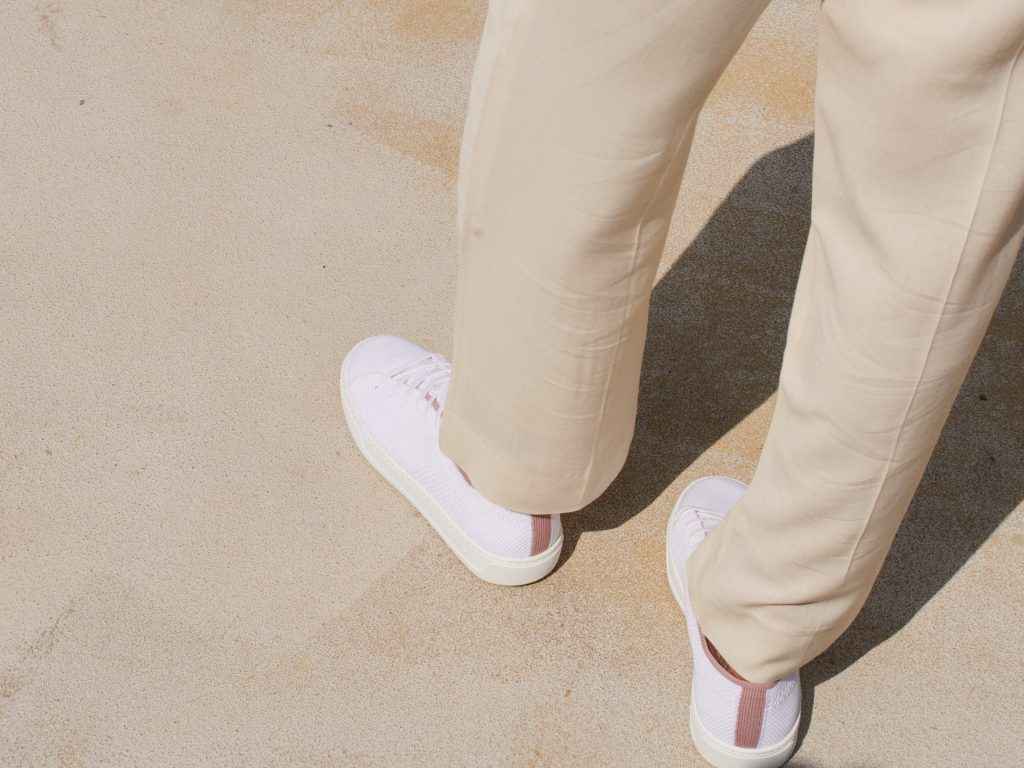
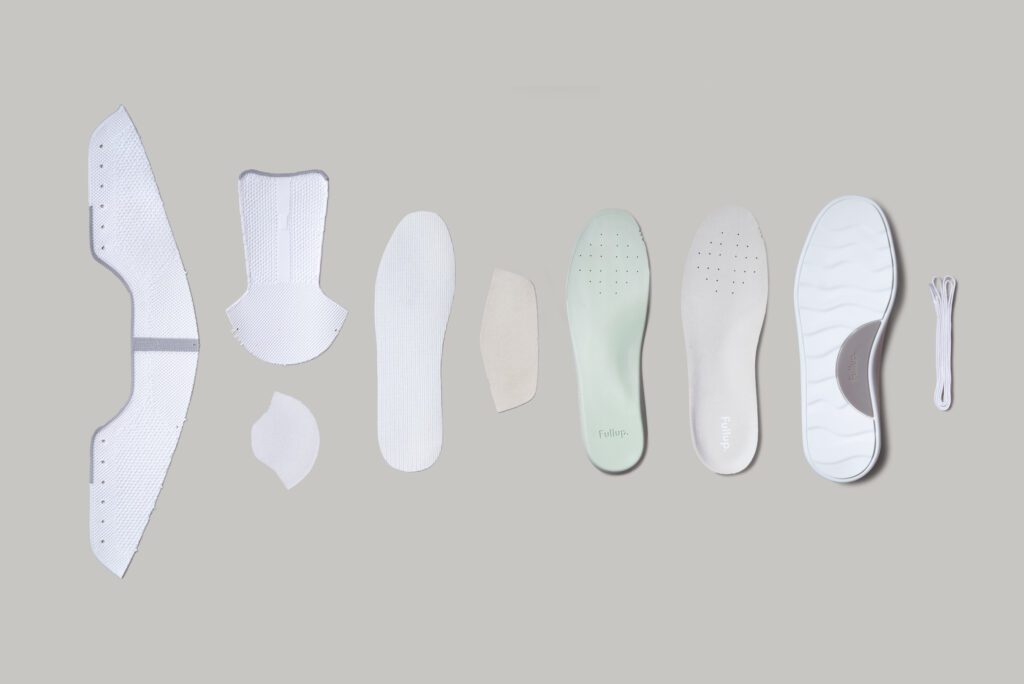
From day one, we have embraced eco-design principles. We consider the environmental aspects at all stages of development in an effort to create products with the lowest possible environmental impact throughout their life cycle. Here are a few of the highlights.
Short, traceable supply chain: In a conventional supply chain, a pair of sneakers commonly has at least 40 to 60 different parts. We have reduced it down to just eight. By stripping back all of the extraneous materials and processes, we have redefined what makes an exceptional shoe and reduced our impact on the environment in the process. Fewer materials and steps in the supply chain, means less waste and lower emissions.
Less is more: The lion’s share of a shoe’s emissions – more than two-thirds – actually comes from the manufacturing process. That’s why it’s so important to extend our minimalist mentality. At Fullup., we have removed cutting, lamination, metal logos, PVC patches, metal eyelets, and toxic synthetic materials from our shoes in an effort to make our manufacturing process as short and energy efficient as possible.
Eco-conscious choices: We take many proactive measures to reduce our impact on the environment, such as using eco-friendly dyes, precision laser cutting, recycled materials, water-based glues, and sustainable packaging materials.
3D techniques: To optimize our workflow, reduce waste and curb emissions, we use several innovative 3D technologies. For starters, we 3D-print our molds, which reduces waste and saves energy. Meanwhile, 3D CAD software reduces the number of samples needed when building our collections – a step that reduces carbon emissions from transit.
Trusted partners: Our selected supply chain partners run on increasingly sustainable energy, ensure clean wastewater treatments and work with local partners to reduce transport between facilities. They also have excellent track records when it comes to ethical manufacturing and premium quality.
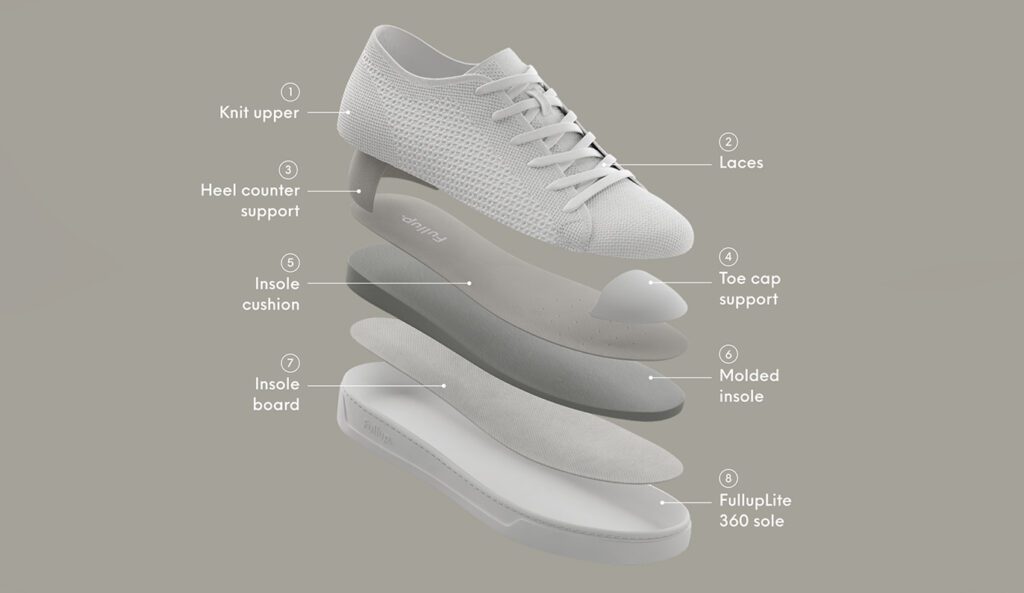
Since we’ve designed for circularity from the beginning, there are a lot of opportunities to make Fullup. even more environmentally friendly. In the future, we plan to offer repair options to our customers so that our products will last longer and generate less waste. We also hope to roll out an upcycling process, so we can keep Fullup. sneakers out of incinerators and landfills at the end of their life cycle.

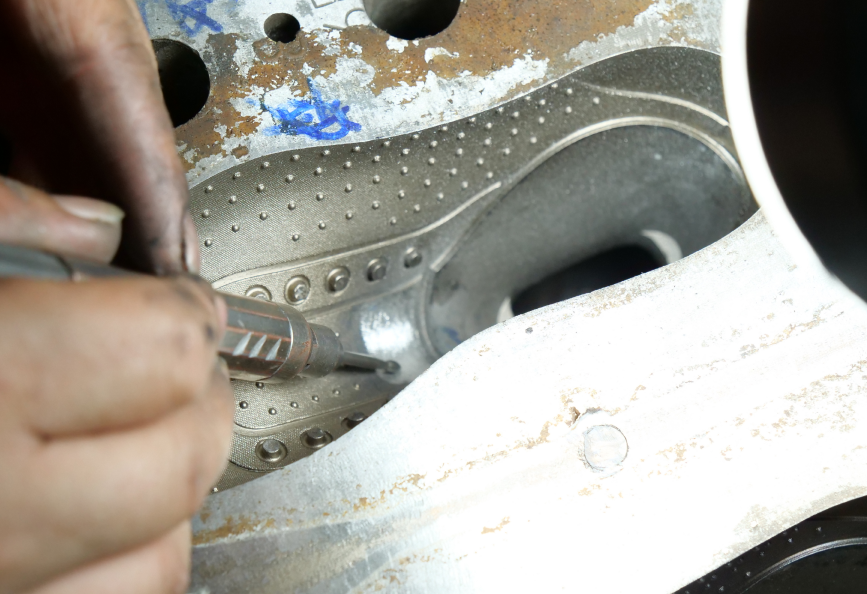
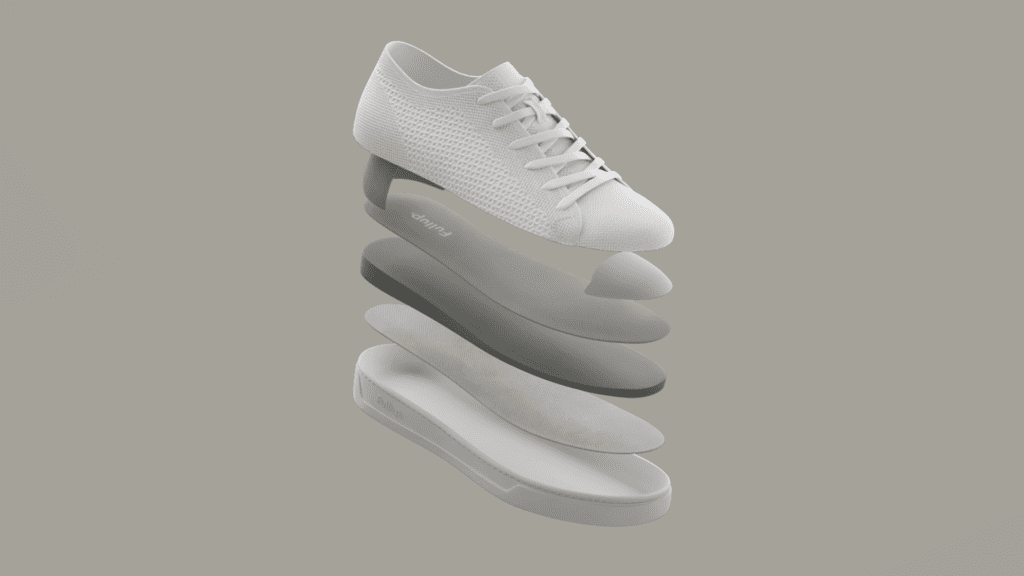
We are committed to making minimalist, durable lifestyle products that you can FEEL GOOD about wearing. Our extensive EXPERIENCE in the fashion industry enables us to source our most premium and durable materials, develop a streamlined and traceable supply chain, and create versatile sneakers with STYLE and LONGEVITY in mind. After all, the longer we can wear each pair of shoes, the less waste we produce.
© 2022 Fullup.Official